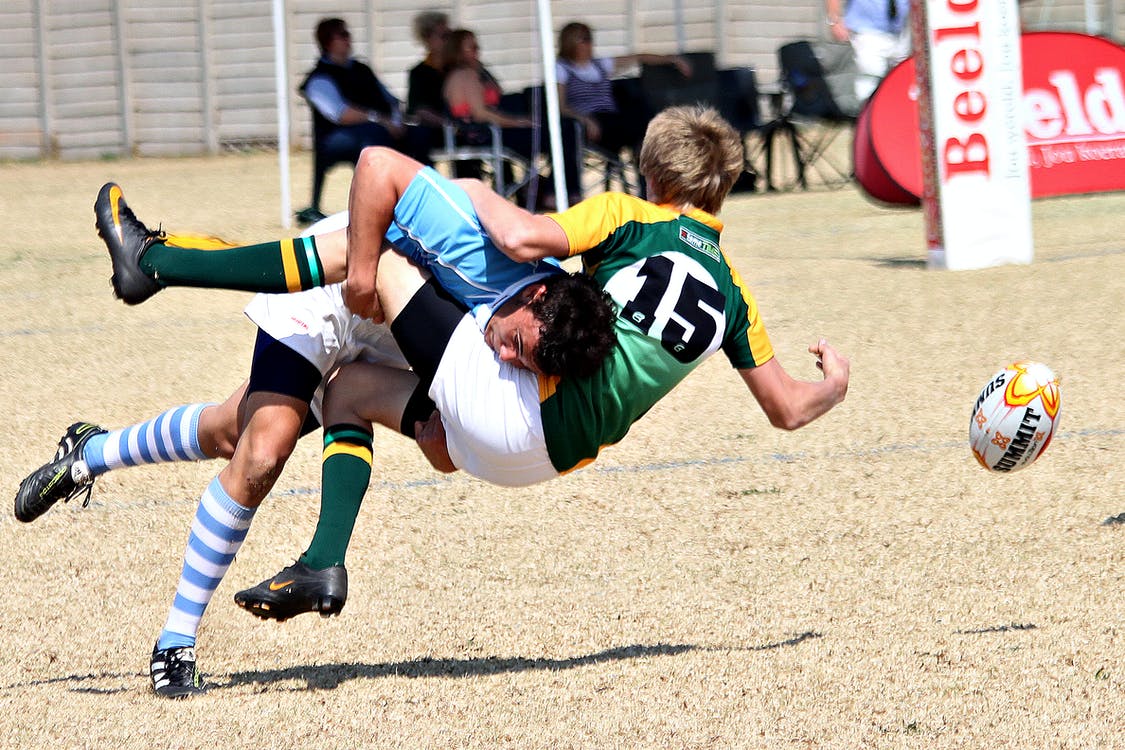Imperial College London has led part of the Drake Rugby Biomarker Study, which aims to better understand any associations between rugby participation and changes to brain structure. 44 elite rugby players, almost half of whom had suffered a concussion in rugby, took part in the study, which took place between July 2017 and September 2019. The results of the study appeared in the journal Brain Communications in 2021.
Here, we’ll examine the initial findings of the Drake Rugby Biomarker Study and the need for further research into the potential long-term impact of head injuries and concussion in rugby.
The Drake Rugby Biomarker Study: Findings
The Drake Rugby Biomarker Study has discovered that 23% of 44 elite rugby players have developed white matter and blood vessel abnormalities and aberrant changes in white matter volume over time. (White matter refers to the brain’s neural connections, which conduct nerve signals, allowing brain cells to interact with each other.) The research team noted that while traditional brain scans didn’t identify abnormalities, the advanced MRI scans used in this study were able to detect subtle changes in players’ brains. These advanced magnetic resonance imaging (MRI) scans can capture minute brain changes, highlighting microbleeds and changes in brain white matter that less advanced scans fail to capture.
The results of the advanced MRI scans have added to the growing evidence that playing professional rugby may lead to long-term brain health effects, including structural changes to the brain’s microstructures. The study involved two types of MRI scans: susceptibility-weighted imaging and diffusion tensor imaging, making the study the first to assess changes in professional rugby players’ brain structures using advanced MRI scans.
The researchers compared the brain health of the rugby player participants (41 male and 3 female) to the brain health of non-contact sports athletes and non-athletes. 21 of the rugby players underwent an assessment shortly after suffering a mild traumatic brain injury — these injuries often cause a concussion in rugby, which is the most common head injury in the game. 23% of all the players displayed abnormalities in their cell axons (the wires of the brain cells) or tiny tears in the blood vessels, namely microbleeds, which are small leaks in the brain. These results were the case for players with and without recent head injuries.
The players also completed assessments, including memory tests, so the research team could evaluate their brain function. These tests concluded that players with brain abnormalities did not perform worse than players without abnormalities.
The Need for Further Research
The senior author from Imperial’s Department of Brain Sciences, Professor David Sharp, explained that although the sports science arena has improved its focus on preventing concussion in rugby, the industry needs more research on the long-term effects of sports concussions and head injuries. Further studies can pave the way for the industry to conceptualise better ways to assess and manage player risk.
The Medical Services Director at the Rugby Football Union (RFU), Dr. Simon Kemp, has expressed that the RFU welcomes all research into understanding the short-, medium-, and long-term implications of head injuries and concussions to better understand how the industry can improve player welfare. The union has actively collaborated with academic institutions on the Drake Foundation Rugby Biomarker Study, especially to promote the recruitment of players.
Conclusions From The Drake Foundation
The Drake Foundation instigated and funded the Drake Biomarker Study, which lays the groundwork for essential developments in sports science research. The Drake Foundation has concluded that although further research is necessary to uncover the long-term ramifications of brain structure abnormalities, evidence of the damage caused by head impacts, paired with recent cases of rugby players who have been diagnosed with brain diseases in their forties, paints a concerning picture.
The Drake Foundation Studies Concussions in Rugby
The Drake Foundation is a not-for-profit organisation that is dedicated to understanding the health and welfare of individuals who have sustained concussions and other head injuries, including sports players and those who have been exposed to IPV (intimate partner violence). Since launching in 2014, the Foundation has funded eight ground-breaking research projects that provide an evidence-based understanding of the possible links between sport-related head impacts and long-term brain health outcomes.

